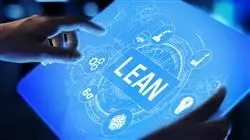University certificate
The world's largest school of business”
Why study at TECH?
You will study an educational program that will lead you into global, immersive learning that will lay the foundation for your professional growth"

Why Study at TECH?
TECH is the world's largest 100% online business school. It is an elite business school, with a model based on the highest academic standards. A world-class centre for intensive managerial skills training.
TECH is a university at the forefront of technology, and puts all its resources at the student's disposal to help them achieve entrepreneurial success"
At TECH Global University
|
|
Innovation |
The university offers an online learning model that combines the latest educational technology with the most rigorous teaching methods. A unique method with the highest international recognition that will provide students with the keys to develop in a rapidly-evolving world, where innovation must be every entrepreneur’s focus.
"Microsoft Europe Success Story", for integrating the innovative, interactive multi-video system.
|
|
The Highest Standards |
Admissions criteria at TECH are not economic. Students don't need to make a large investment to study at this university. However, in order to obtain a qualification from TECH, the student's intelligence and ability will be tested to their limits. The institution's academic standards are exceptionally high...
95% of TECH students successfully complete their studies.
|
|
Networking |
Professionals from countries all over the world attend TECH, allowing students to establish a large network of contacts that may prove useful to them in the future.
100,000+ executives trained each year, 200+ different nationalities.
|
|
Empowerment |
Students will grow hand in hand with the best companies and highly regarded and influential professionals. TECH has developed strategic partnerships and a valuable network of contacts with major economic players in 7 continents.
500+ collaborative agreements with leading companies.
|
|
Talent |
This program is a unique initiative to allow students to showcase their talent in the business world. An opportunity that will allow them to voice their concerns and share their business vision.
After completing this program, TECH helps students show the world their talent.
|
|
Multicultural Context |
While studying at TECH, students will enjoy a unique experience. Study in a multicultural context. In a program with a global vision, through which students can learn about the operating methods in different parts of the world, and gather the latest information that best adapts to their business idea.
TECH students represent more than 200 different nationalities.

|
|
Learn with the best |
In the classroom, TECH teaching staff discuss how they have achieved success in their companies, working in a real, lively, and dynamic context. Teachers who are fully committed to offering a quality specialization that will allow students to advance in their career and stand out in the business world.
Teachers representing 20 different nationalities.
TECH strives for excellence and, to this end, boasts a series of characteristics that make this university unique:
|
|
Analysis |
TECH explores the student’s critical side, their ability to question things, their problem-solving skills, as well as their interpersonal skills.
|
|
Academic Excellence |
TECH offers students the best online learning methodology. The university combines the Relearning method (a postgraduate learning methodology with the highest international rating) with the Case Study. A complex balance between tradition and state-of-the-art, within the context of the most demanding academic itinerary.
|
|
Economy of Scale |
TECH is the world’s largest online university. It currently boasts a portfolio of more than 10,000 university postgraduate programs. And in today's new economy, volume + technology = a ground-breaking price. This way, TECH ensures that studying is not as expensive for students as it would be at another university.
At TECH, you will have access to the most rigorous and up-to-date case studies in the academic community”
Syllabus
The Postgraduate diploma in Lean Management, Process Improvement and Digital Transformation in Industrial Companies is designed based on the current needs of professionals, and taught in a 100% online format so that students can choose the time and place that best suits their availability, schedules and interests. In addition, by studying this program, the student will have access to the most complete and up-to-date content compendium on the market. All this, in a syllabus that is taught over 6 months and that aims to be a unique and stimulating experience that lays the foundations for the student's professional success.
In a globalized and highly changing world, specialization is the only way for professionals to differentiate their profile"
Syllabus
The Production area, in its broadest sense (Production + Materials Control + Maintenance + Process Engineering) is one of the pillars on which the future of industrial companies is based, being the productive operations one of the key elements for the achievement of the objectives of all companies: profitability through customer satisfaction.
Today, industrial companies face the challenge of finding new organizational techniques that will enable them to compete in a global marketplace. The lean manufacturing model, is a consolidated alternative and its application and potential must be taken into consideration by any company that intends to compete in a global environment.
On the other hand, during the program we will delve into quality management, which has become a necessary and essential requirement to be able to compete and survive. It is no longer enough for quality to be the responsibility of its own area, it is necessary to promote its importance so that each part of the company works to offer the best possible level of quality to its customers, and these can be both internal and external to the company.
For all these reasons, this Postgraduate diploma will go in depth into the key issues of quality management in companies, addressing the many key aspects that need to be developed (techniques and tools, quality systems, audits, process and maintenance of certification, business excellence, etc.)
Finally, the importance for companies of implementing automation processes will be discussed. In this line, today it is a fact that companies have fewer and fewer workers and are more automated in their production processes, therefore, middle managers and managers must be more and more accustomed to knowing and handling automation concepts to avoid being left behind in the new era of industry 4.0.
This Postgraduate diploma takes place over 6 months and is divided into 4 modules:
Module 1. Production Planning and Control
Module 2. Lean Manufacturing
Module 3. Quality Management
Module 4. Industry 4.0 and Business Intelligence. The Digitized Company

Where, when and how is it taught?
TECH offers the possibility of taking this program completely online. Throughout the 6 months of training, you will be able to access all the contents of this program at any time, allowing you to self-manage your study time.
Module 1. Production Planning and Control
1.1. Phases of Production Planning
1.1.1. Advanced Planning
1.1.2. Sales Projections, Methods
1.1.3. Definition of Takt-Time
1.1.4. Material Plan-MRP-Minimum Stock
1.1.5. Personal Plan
1.1.6. Equipment Needs
1.2. Performance Development Plan (PDP)
1.2.1. Factors to Consider
1.2.2. Push Planning
1.2.3. Pull Planning
1.2.4. Mixed Systems
1.3. Kanban
1.3.1. Types of Kanban
1.3.2. Uses of Kanban
1.3.3. Autonomous Planning: 2 Bin Kanban
1.4. Production Control
1.4.1. PDP Deviations and Reporting
1.4.2. Monitoring of Performance in Production: OEE
1.4.3. Monitoring of Total Capacity: TEEP
1.5. Production Organization
1.5.1. Production Equipment
1.5.2. Engineering Processes
1.5.3. Maintenance
1.5.4. Control of Materials
1.6. Total Productive Maintenance (TPM)
1.6.1. Corrective Maintenance
1.6.2. Autonomous Maintenance
1.6.3. Preventative Maintenance
1.6.4. Predictive Maintenance
1.6.5. Maintenance Efficiency Indicators MTBF-MTTR
1.7. Plant Layout
1.7.1. Conditioning Factors
1.7.2. Online Production
1.7.3. Production in Work Cells
1.7.4. Applications
1.7.5. SLP Methodology
1.8. Just-In-Time (JIT)
1.8.1. Description and Origins of JIT
1.8.2. Objectives
1.8.3. Applications of JIT. Product Sequencing
1.9. Theory of Constraints (TOC)
1.9.1. Fundamental Principles
1.9.2. The 5 Steps of TOC and its Application
1.9.3. Advantages and Disadvantages
1.10. Quick Response Manufacturing (QRM)
1.10.1. Description
1.10.2. Key Points for the Structuring
1.10.3. Implementation of the QRM
Module 2. Lean Manufacturing
2.1. Lean Thinking
2.1.1. Structure of the Lean System
2.1.2. Lean Principles
2.1.3. Lean vs. Traditional Manufacturing Processes
2.2. Waste in the Company
2.2.1. Value vs. Waste in Lean Environments
2.2.2. Types of Waste (MUDAS)
2.2.3. The Lean Thinking Process
2.3. LAS 5S
2.3.1. The 5S Principles and How They Can Help Us Improve Productivity
2.3.2. The 5 Ss Seiri, Seiton, Seiso, Seiketsu and Shitsuke
2.3.3. Implementation of the 5S in the Company
2.4. Lean Diagnostic Tools. VSM Value Stream Maps
2.4.1. Value-Adding Activities (VA), Necessary Activities (NNVA) and Non-Value-Adding Activities (NVA)
2.4.2. The 7 Tools of Value Stream mapping (Value Stream Maps)
2.4.3. Process Activity Mapping
2.4.4. Mapping of Supply Chain Response
2.4.5. The Production Variety Funnel
2.4.6. Quality Filter Mapping
2.4.7. Demand Amplification Mapping
2.4.8. Decision Point Analysis
2.4.9. Physical Structure Mapping
2.5. Lean Operational Tools
2.5.1. SMED
2.5.2. JIDOKA
2.5.3. POKAYOKE
2.5.4. Batch Reduction
2.5.5. POUS
2.6. LEAN Tools for Production Monitoring, Planning and Control
2.6.1. Visual Management
2.6.2. Standardization
2.6.3. Production Leveling (Heijunka)
2.6.4. Manufacturing in Cells
2.7. The Kaizen Method for Continuous Improvement
2.7.1. Kaizen Principles
2.7.2. Kaizen Methodologies: Kaizen Blitz, Gemba Kaizen, Kaizen Teian
2.7.3. Problem Solving Tools A3 Report
2.7.4. Main Obstacles for Implementing Kaizen
2.8. Roadmap for Lean Implementation
2.8.1. General Aspects of Implementation
2.8.2. Phases of Implantation
2.8.3. Information Technologies in Lean Implementation
2.8.4. Success Factors in Lean
2.9. Lean Performance Measurement KPIs
2.9.1. OEE- Overall Equipment Efficiency
2.9.2. TEEP-Total Equipment Effectiveness Performance
2.9.3. FTT-First Time Quality
2.9.4. DTD-Dock to Dock Time
2.9.5. OTD-On-Time Delivery
2.9.6. BTS-Programmed Manufacturing
2.9.7. ITO-Inventory Turnover Rate
2.9.8. VAR-Value Added Ratio
2.9.9. PPMs-Parts per Million Defects
2.9.10. DR-Delivery Rate
2.9.11. IFA-Accident Frequency Rate
2.10. Lean’s Human Dimension Staff Participation Systems
2.10.1. The Team in the Lean Project. Application of Teamwork
2.10.2. Operator Versatility
2.10.3. Improvement Groups
2.10.4. Suggestion Programs
Module 3. Quality Management
3.1. Total Quality
3.1.1. Total Quality Management
3.1.2. External and Internal Customers
3.1.3. Quality Costs
3.1.4. Continuous Improvement and the Deming Philosophy
3.2. ISO 9001:15 Quality Management System
3.2.1. The 7 Principle of ISO 9001:15 Quality Management
3.2.2. Process Approach
3.2.3. ISO 9001: 9001 Requirements
3.2.4. Implementation Stages and Recommendations
3.2.5. Deployment Objectives in a Hoshin-Kanri-Type Model
3.2.6. Audit Certification
3.3. Integrated Management System
3.3.1. Environmental Management Systems: ISO 14000
3.3.2. Occupational Risk Management System: ISO 45001
3.3.3. Integrating Management Systems
3.4. Excellence in Management: EFQM Model
3.4.1. EFQM Model: Principles and Fundamentals
3.4.2. New EFQM Model Criteria
3.4.3. EFQM Diagnostic Tool: REDER Matrices
3.5. Quality Tools
3.5.1. Basic Tools
3.5.2. Statistical Process Control (SPC)
3.5.3. Control Plan and Guidelines for Product Quality Management
3.6. Advanced Tools and Troubleshooting Tools
3.6.1. FMEA
3.6.2. 8D Report
3.6.3. The 5, Why?
3.6.4. 5W + 2H
3.6.5. Benchmarking
3.7. Continuous Improvement Methodology I: PDCA
3.7.1. PDCA Cycle and Stages
3.7.2. Applying PDCA Cycle to Lean Manufacturing Development
3.7.3. Keys to Success in PDCA Projects
3.8. Continuous Improvement Methodology II: Six Sigma
3.8.1. Six Sigma Description
3.8.2. Six-Sigma Principles
3.8.3. Six-Sigma Project Selection a
3.8.4. Six Sigma Project Stages: DMAIC Methodology
3.8.5. Six Sigma Roles
3.8.6. Six-Sigma and Lean Manufacturing
3.9. Quality Suppliers: Audits Tests and Laboratory
3.9.1. Reception Quality: Agreed Quality
3.9.2. Internal Audits of the Management System
3.9.3. Product and Process Audits
3.9.4. Phases for Performing Audits
3.9.5. Auditor Profile
3.9.6. Tests, Laboratory and Metrology
3.10. Organization Aspects in Quality Management
3.10.1. The Role of Administration in Quality Management
3.10.2. Quality Area Organization and the Relationship with Other Areas
3.10.3. Quality Circles
Module 4. Industry 4.0 and Business Intelligence. The Digitized Company
4.1. Automation and Industrial Robotics
4.1.1. Process Automation Phases
4.1.2. Industrial Hardwarefor Automation and Robotics
4.1.3. The Work Cycle and Its Software Programming
4.2. Process Automation: RPA
4.2.1. Administrative Processes that Can Be Automated
4.2.2. Software Structure
4.2.3. Application Examples
4.3. MES, SCADA, CMMS, WMS, MRPII Systems
4.3.1. Production Control with MES Systems
4.3.2. Engineering and Maintenance: SCADA AND CMMS
4.3.3. Procurement and Logistics: WMS and MPRII
4.4. Business Intelligence Software
4.4.1. BI Fundamentals
4.4.2. Software Structure
4.4.3. Possibilities of Its Implementation
4.5. Software ERP
4.5.1. ERP Description
4.5.2. Scope of Use
4.5.3. Main ERP on the Market
4.6. IoT and Business Intelligence
4.6.1. IoT. The Connected World
4.6.2. Data Sources
4.6.3. Control Using IoT + BI
4.6.4. Blockchain
4.7. Main BI Software on the Market
4.7.1. Power BI
4.7.2. Qlik
4.7.3. Tableau
4.8. Microsoft Power Bi
4.8.1. Features
4.8.2. Application Examples
4.8.3. The Future of Power Bi
4.9. Machine Learning, Artificial Intelligence, Optimization and Prediction in the Company
4.9.1. Machine Learning and Artificial Intelligence
4.9.2. Process Optimization
4.9.3. The Importance of Data-Driven Forecasting
4.10. Big Data Applied to the Business Environment
4.10.1. Applications in the Production Environment
4.10.2. Applications at the Strategic Management Level
4.10.3. Marketing and Sales Applications

A unique, key, and decisive educational experience to boost your professional development and make the definitive leap"
Postgraduate Diploma in Lean Management, Process Improvement and Digital Transformation in the Industrial Company
Currently, the industrial market is facing a series of constantly evolving challenges that demand greater efficiency in process management, as well as greater adaptability to change. In this sense, the Postgraduate Diploma in Lean Management, Process Improvement and Digital Transformation in the Industrial Enterprise becomes a necessity for professionals seeking to improve their leadership skills, their innovation competencies and their ability to improve the quality and efficiency of production processes. The objective of this program is, therefore, to offer you the necessary tools to learn how to manage processes and projects in a solvent way, reducing costs, achieving an excellent level of quality and guaranteeing customer satisfaction, adapting completely to technological and market changes.
Study from the comfort of your own home and without time limitations.
The Postgraduate Diploma in Lean Management, Process Improvement and Digital Transformation in the Industrial Enterprise is developed 100% online, which allows students to access the didactic content from anywhere and at any time of the day they deem appropriate. In addition, the program has multimedia resources, such as videos, evaluative tests and interactive summaries, which make learning more dynamic and efficient. Along the same lines, it has been designed by leading experts in the business world, who have extensive experience in process and project management in the industrial sector. Take this program and develop your skills in this field to ensure your professional growth in just 6 months!

















